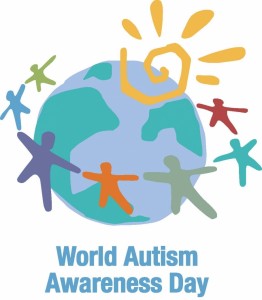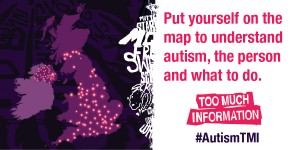The best campaigns – at least those intended for the benefit of the common good – are led, not from the top or some central point of governance, but by people on the ground. Last week, Lyn Romeo, our Chief Social Worker for Adults, used her blog to once again stress the importance of community as a means to normalise the experience of those living with autism, Asperger’s and other cognitive conditions.
 Even if you’re not a resident of Liverpool, I hope you’re aware of its leaders’ intention to make it the country’s first autism friendly city - this is a most welcome announcement made at the start of this year's World Autism Awareness Week. Supported by Autism Together in association with the city council, autism charities and local businesses, this union of public, private and third sectors is something I wish would happen more frequently in other areas of national life.
Even if you’re not a resident of Liverpool, I hope you’re aware of its leaders’ intention to make it the country’s first autism friendly city - this is a most welcome announcement made at the start of this year's World Autism Awareness Week. Supported by Autism Together in association with the city council, autism charities and local businesses, this union of public, private and third sectors is something I wish would happen more frequently in other areas of national life.
Earlier this year, the Think Autism progress report, our update to the cross-government autism strategy of 2014, highlighted positive advances in opportunity and access. There was much to commend around reforms to education and disability provision, greater support for those pursuing employment opportunities and heightened awareness of autism within the criminal justice system. These are all incredibly important areas to address of course, but risk being limited in their effectiveness by a lack of understanding in society at large.
 It’s this lack of understanding I’m very pleased to see addressed by an excellent new National Autistic Society (NAS) campaign called Too Much Information (TMI) – also launched during this awareness raising week. The difficulty autistic people face trying to process stimuli is often misinterpreted – it can lead the unaware to label people as ‘difficult’ or, if they’re young, ‘naughty.’
It’s this lack of understanding I’m very pleased to see addressed by an excellent new National Autistic Society (NAS) campaign called Too Much Information (TMI) – also launched during this awareness raising week. The difficulty autistic people face trying to process stimuli is often misinterpreted – it can lead the unaware to label people as ‘difficult’ or, if they’re young, ‘naughty.’
As NAS emphasises in its campaign materials, 99 percent of the public may have heard of autism but 50 percent ‘get annoyed when parents can’t control their children’ and 28 percent of autistic people ‘have been asked to leave a public space’. Not surprisingly, NAS also reports that those living with autism and their families sometimes feel anxious going out because they worry about the attitudes and responses they might encounter.
If you haven’t visited their campaign site yet – or explored the wider work they do – then I urge you to do so now. In particular, this short film, set in a shopping centre and shot from the perspective of a boy with autism shopping with his mum, really brings home the anxiety, confusion and isolation people with the condition suffer in environments many of us take for granted.
 Of course, NAS isn’t raising awareness on its own. It’s also working with Autism Alliance UK, the largest network of specialist autism charities in the country. Together, they are leading the Connect to Autism project, co-ordinated by the North East Autism Society and which the Department of Health is funding. The project encourages local organisations to become Autism Champions by making public commitments to train staff in autism awareness. Local libraries, museums, football clubs and health centres have all signed up and I hope this template will be replicated across the country. I am particularly pleased that my own football team, Queen Park Rangers, became the first spectator sports arena to be awarded the Autism Access Award. Indeed, for a QPR fan, the very idea of being first was quite a revelation.
Of course, NAS isn’t raising awareness on its own. It’s also working with Autism Alliance UK, the largest network of specialist autism charities in the country. Together, they are leading the Connect to Autism project, co-ordinated by the North East Autism Society and which the Department of Health is funding. The project encourages local organisations to become Autism Champions by making public commitments to train staff in autism awareness. Local libraries, museums, football clubs and health centres have all signed up and I hope this template will be replicated across the country. I am particularly pleased that my own football team, Queen Park Rangers, became the first spectator sports arena to be awarded the Autism Access Award. Indeed, for a QPR fan, the very idea of being first was quite a revelation.
I should also mention the seed corn funding of £18,500 we provided to each local authority last year to test out technologies (such as iPads to aid non-verbal communication) and pilot schemes that could make local communities more autism friendly. I will watch with keen interest to see how these schemes play out.
Autism should never be a barrier to enjoying the access and opportunity afforded to others. NAS and its partners are doing great work helping more of us realise that sometimes we are the barrier. Beyond legislation, it is only through empathy and understanding that true progress can be made and sustained. When I sit in the family stand at Loftus Road it is great to know that families with autistic children and/or parents can enjoy a great day out (well, perhaps other than the result). Like the city of Liverpool, let's make this the norm across society.
